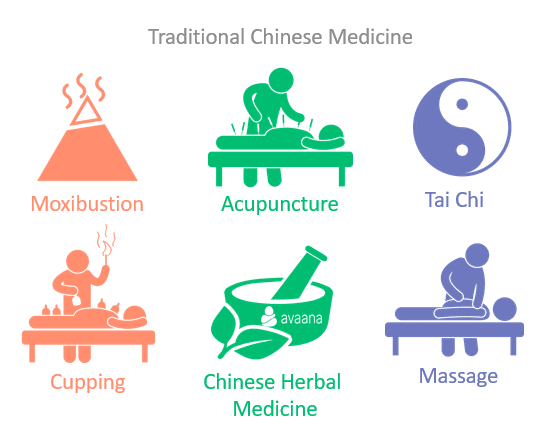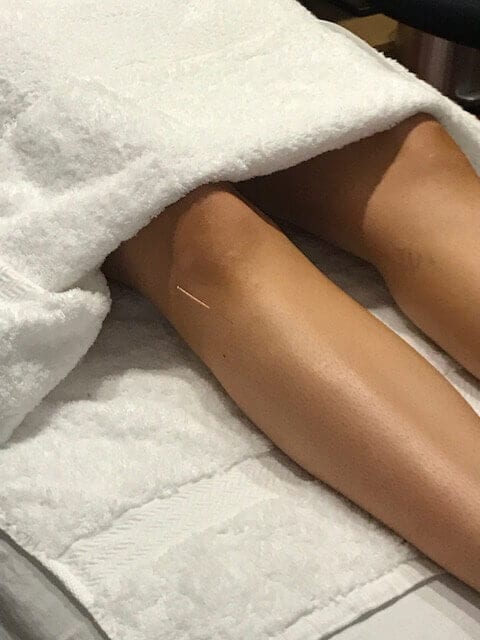When we’re in pain, unwell or not quite right, most of us head straight to the medicine cabinet. We treat the symptoms and feel ‘okay’ again, but we don’t address the root of the problem. Instead of choosing a quick fix next time you’re unwell, try acupuncture for a remedy that cures the cause of your ailment.
Acupuncture is a form of Traditional Chinese Medicine (TCM) that treats the root of the problem. TCM has been practised for over 5,000 years and provides a long-term approach to health and well-being. No wonder so many people swear by it!
Acupuncture for today’s world: An ancient therapy for modern health concerns
TCM is an umbrella term for a range of therapies like acupuncture, which are all-natural, holistic and safe. While these therapies are all unique, they follow the same overarching set of beliefs. Specifically, if your body is in balance and a state of harmony, good health will follow.
But what does ‘balance’ and ‘harmony’ mean?
Traditional Chinese Medicine believes a life force called Qi (pronounced ‘Chi’) flows through the meridians in our bodies. Blocked or disrupted Qi may result in poor health. TCM also believes the body is comprised of five elements: water, wood, fire, metal and earth. Each element corresponds with organs and systems in the body. By focusing on these five elements and using techniques to restore the flow of Qi, TCM treats health problems from the ground up.

So what is acupuncture?
Acupuncture uses very fine needles to stimulate different acupoints in the body. By stimulating the acupoints, a TCM practitioner can access, restore and correct the flow of Qi.
Each acupoint links to a specific bodily system. However, the acupoints are not necessarily close, in proximity, to these systems. For example, acupuncture for nausea is done by stimulating an acupoint on the hand. The stimulation of certain points can also increase blood flow to an area, which assists with healing.
Can I try acupuncture?
People turn to acupuncture for a wide variety of conditions or to complement conventional treatment. Conan Cole, the doctor of TCM and acupuncture from GL Natural Healthcare, said “People are often surprised at how broad the applications of acupuncture can be.” While Conan commonly treats musculoskeletal conditions, chronic pain and migraines, he said “many metabolic diseases like diabetes and heart conditions can also be treated with acupuncture.”

Conan also spoke about how acupuncture can be a lifesaver when it comes to bad period pains. “One of the first things we learn in our gynaecological training is that bad period pains are not normal and can be treated through acupuncture.”
Acupuncture may also be effective in treating mental health conditions like depression and chronic fatigue. Additionally, acupuncture can help maintain your overall health and well-being. This means you don’t need to be feeling unwell or in pain to consult an acupuncturist.
Acupuncture for weight loss is also becoming a popular reason to try it. Although it does not directly cause you to lose weight, acupuncture helps reduce cravings, improves recovery time after exercise, energizes and refreshes you, and reduces stress. With a healthier body, you can focus on your diet and exercise regime more fully.
What does acupuncture feel like?
The word ‘needle’ sets off alarm bells, which is why so many of us never experience the wonder of acupuncture. But don’t worry! When administered properly by an experienced acupuncturist, acupuncture doesn’t hurt. It’s not like having blood drawn! Many people (including myself!) feel sleepy as they descend into a state of deep relaxation during treatment. It was pure bliss for me!
As Conan said, “It amazed me when I first started treating people. You put needles in their body and they’re worried about it being painful, but people fall asleep. They snore in the rooms, they’re that relaxed.”

What to expect in your first acupuncture session
When you book your first acupuncture therapy, the acupuncturist will schedule a few minutes for a preliminary examination and to understand the nature of your complaint. You should be prepared to answer questions regarding your physical and mental health and the medical history of your family.
After this, the acupuncturist will explain the recommended treatment. Depending on the acupoints that the therapist will need to access, you may have to roll up your clothing or undress. Your first session may take anywhere between 20 minutes to 2 hours.
The needles used are very fine, almost hair-like, and most people do not feel pain. Some people report feeling a tingling during and after an acupuncture session, around the site of the treatment as well as through their body. Most feel relaxed and experience a floating sensation.
Self-care after your acupuncture session
After your session, you should take some time to relax and enjoy the benefits of your acupuncture treatment. Here’s what you need to do:
- Clear your schedule so that you can go home after your treatment and rest or take a nap.
- Avoid any exercise after your treatment.
- Drink plenty of water and avoid foods or beverages that will dehydrate you, such as coffee or alcohol. After your treatment, the toxins that have been unblocked will be flowing through your system, so you want to help flush them out.
- Eat light nourishing meals to help your body excrete the toxins rather than adding more processed fats and sugar.
- Wrap yourself up and avoid winds and exposure to colds for a day or two after your treatment. You may be more prone to catching a cold while your system ‘reboots’ itself.
If you’re looking for acupuncture or TCM, book an appointment with experienced practitioners on Avaana today!



